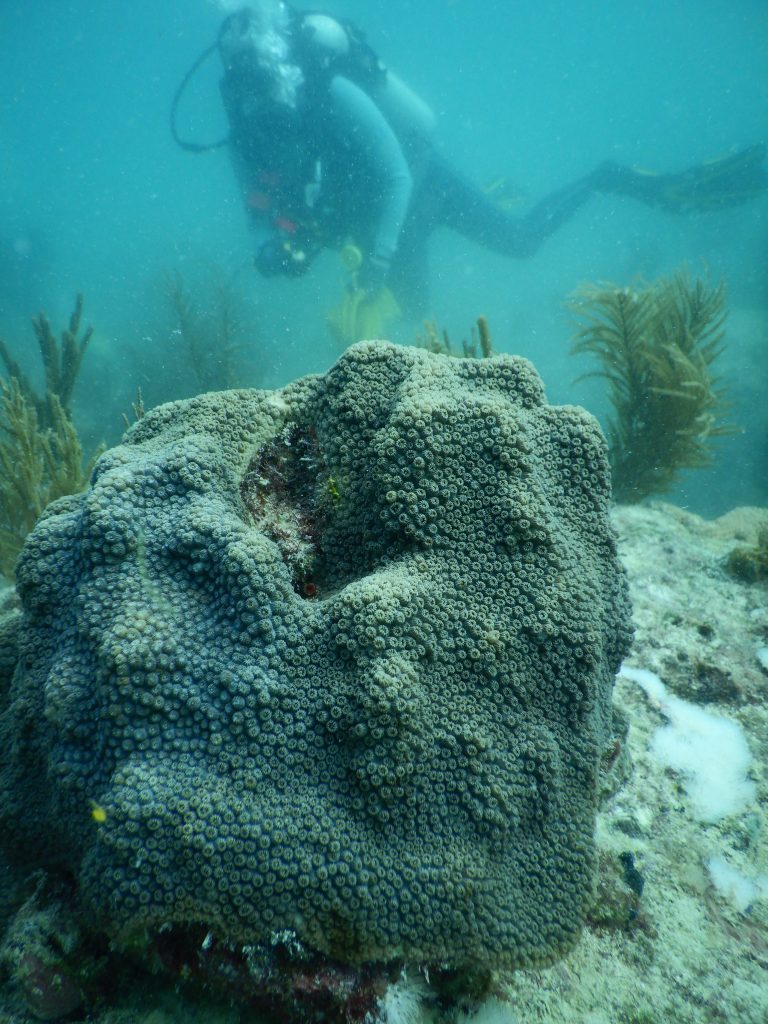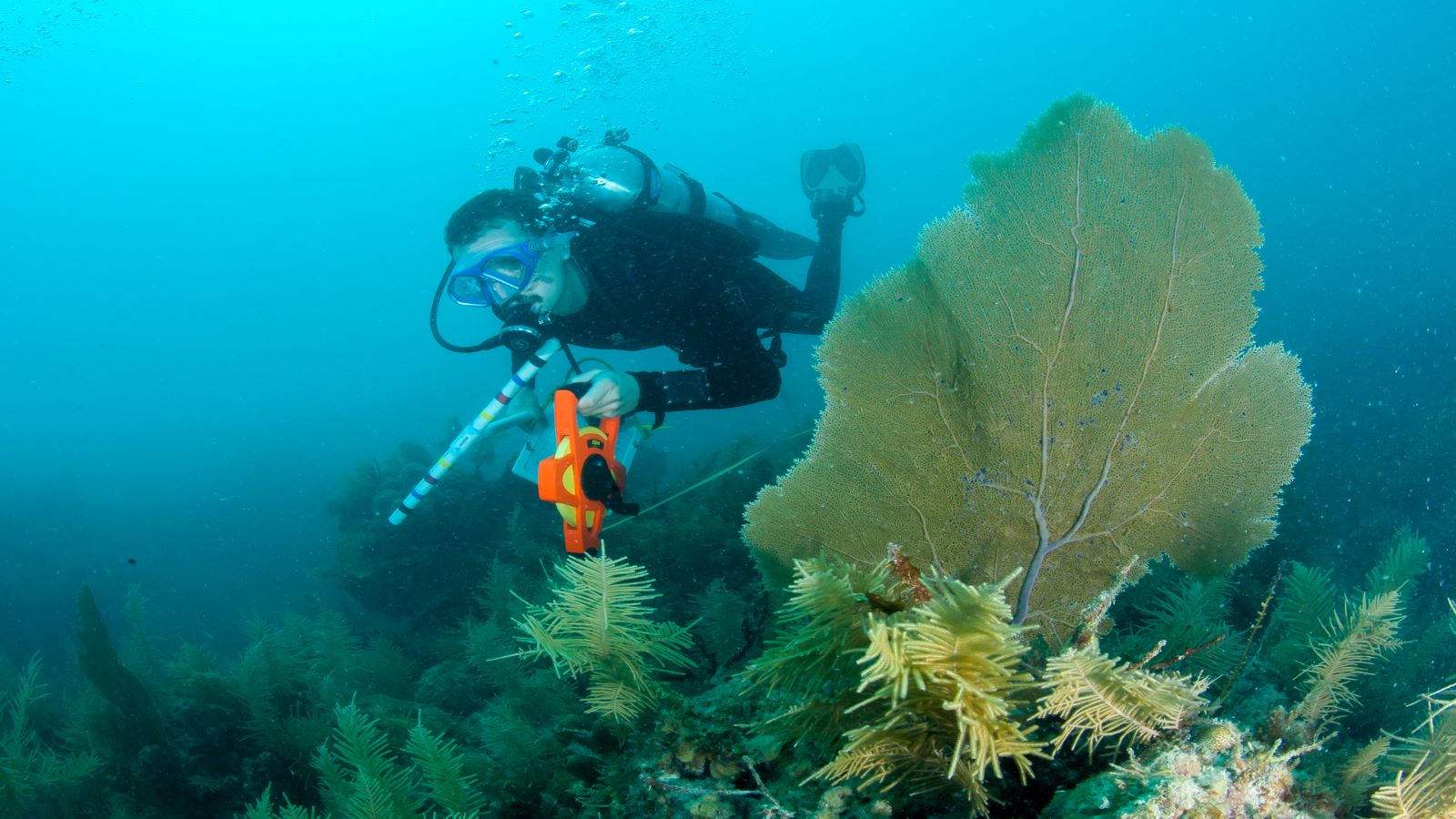This story was adapted from an article by the University of Miami Rosenstiel School of Marine, Atmospheric, and Earth Science.
A group of scientists from NOAA’s Atlantic Oceanographic and Meteorological Laboratory and the University of Miami’s Cooperative Institute of Marine and Atmospheric Studies have found that 70 percent of Florida’s coral reefs are experiencing a net loss of reef habitat.

Uncovering the state of Florida’s reefs can help scientists to understand which reefs require management and restoration efforts to prevent further habitat loss and it allows scientists to recognize which coral reefs may be more susceptible to erosion in the future, prompting researchers to take preventative action.
“This research helps us to better understand which reefs along Florida’s reef tract are vulnerable to habitat loss and require management and restoration efforts to prevent further habitat loss. On the contrary, we also identified reefs that may be potential hold-outs to reef development and are more likely to persist in the future.”
– John Morris, the study’s lead author who recently received a doctoral degree from the University of Miami while working on AOML coral research programs.
Data from NOAA’s National Coral Reef Monitoring Program and from National Geodetic Surveys was used to calculate the carbonate budget of The Florida Reef Tract, the only living coral barrier reef system in the continental United States. Out of 723 reef sites, scientists found that 506 reef sites were losing reef habitat annually. This great loss of coral reef cover is the direct result of disease (such as Stony Coral Tissue Loss Disease which has been ravaging reefs in Florida and the Caribbean since 2014), bleaching events, and ship groundings.
With this knowledge, scientists have a baseline that can be used to track management and restoration strategies going forward. With a better understanding, better restoration and management strategies, higher coral survival is possible.
“This study is especially informative because it takes a holistic approach, synthesizing the ecology of a biodiverse community of reef-dwellers. Unfortunately, we have found that habitat erosion is all too common in the Florida Keys, really underscoring the importance of the many management and restoration efforts that NOAA, AOML, and others are involved in throughout the region.”
– Ian Enochs, co-author and head of the AOML Coral Program
This AOML-led effort represents a true one-NOAA effort, with important contributions from NOAA Research, NOAA Fisheries, and NOAA National Ocean Service, as well as our cooperative institute partners at the University of Miami.
_ _
Morris, J.T., Enochs, I.C., Besemer, N. et al. Low net carbonate accretion characterizes Florida’s coral reef. Sci Rep 12, 19582 (2022). https://doi.org/10.1038/s41598-022-23394-4
The research was supported by the NOAA Coral Reef Conservation Program Project #743.
